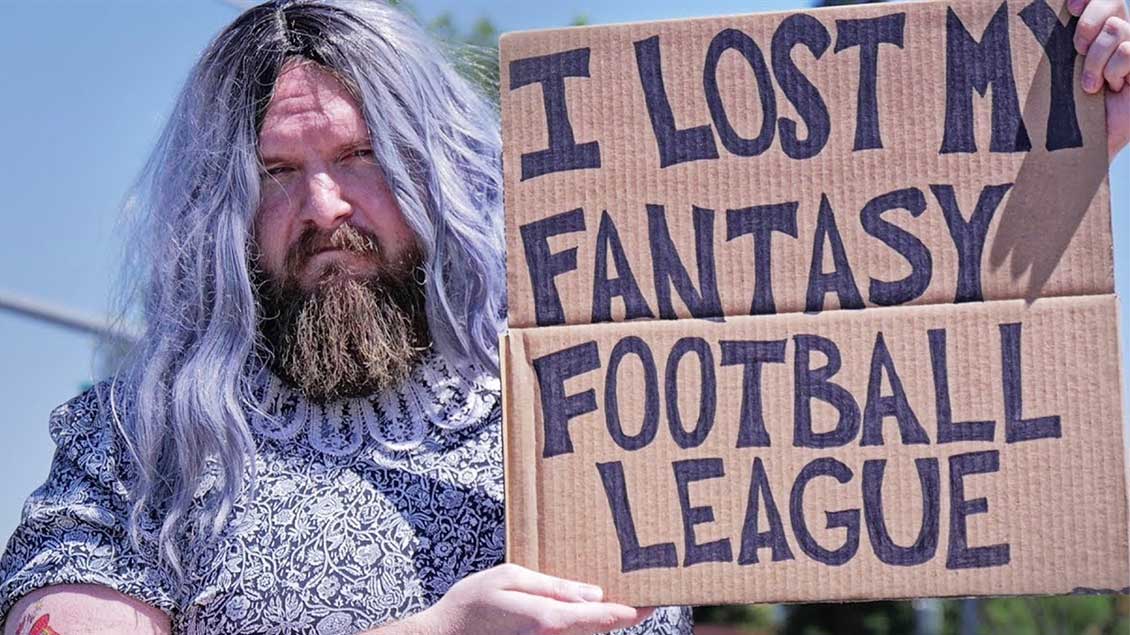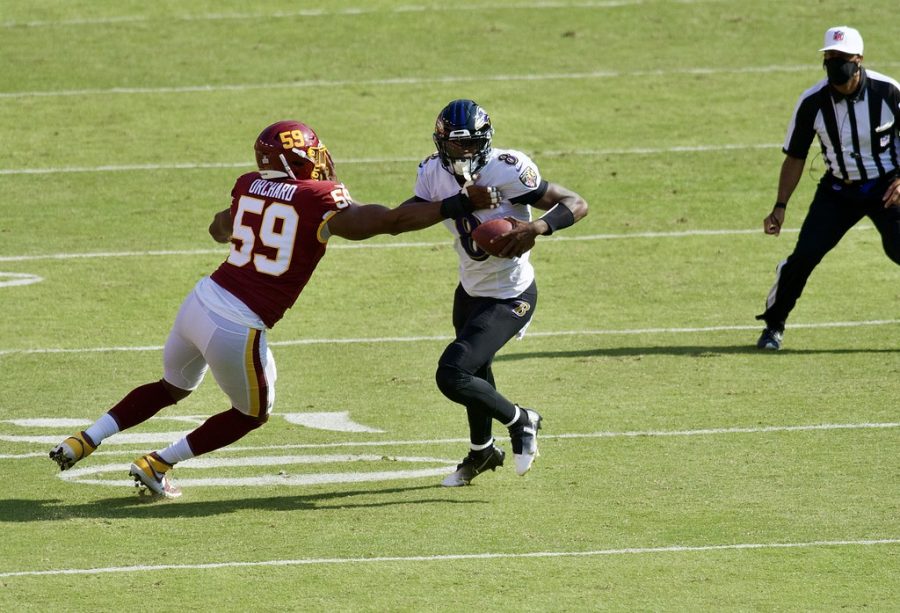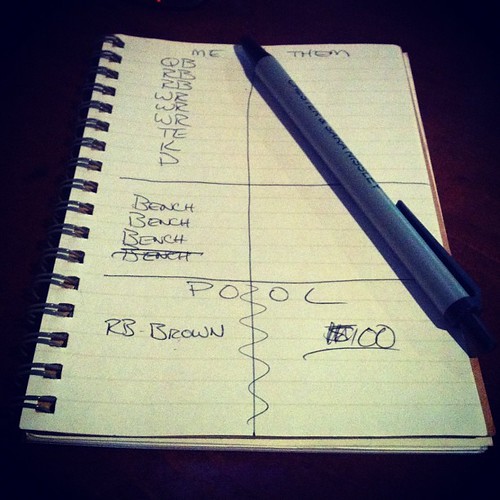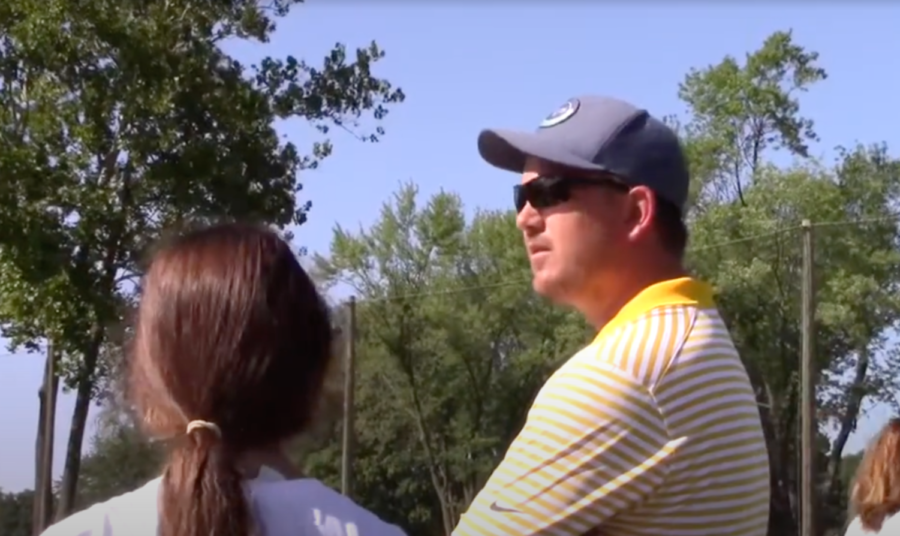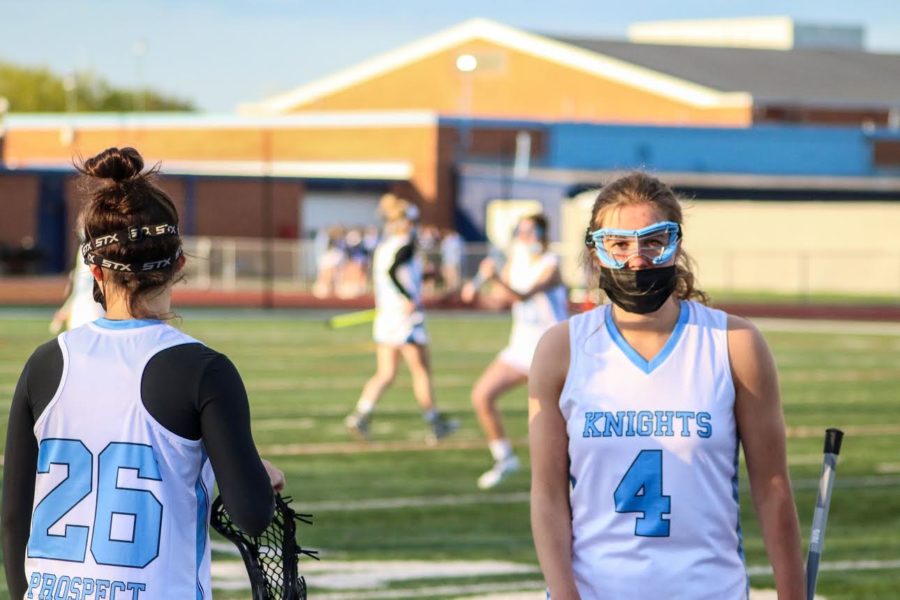 By Heather Dove
By Heather DoveOnline Editor
Junior Michele Molini would wake up at 6:30 a.m. to the sound of Ken Braid driving around blasting music from his car. In her cabin were three other people, and total there were twenty girls, all from Illinois. Split into two teams of ten, the red team and the blue team, the girls would only spend one week at the J. Kyle Braid (JKB) ranch in Villa Grove, Colorado.
“It was a pretty busy day. Every day you were up at the crack of dawn,” Molini said.
Although when Molini went to the camp with one other Prospect student on June 25 there were only girls, later two boys from Prospect would attend the event with all boys.
“Actually, It’s kind of fun waking up,” Junior Kennedy McNamara, one of the Prospect boy students to go to the ranch, said. “Each cabin is spaced [about] 30 feet from each other, [Ken Braid] has a cannon blowing up in the background, he has really loud music, and he walks around and makes as much noise as possible just to wake you up. I’m not sure if it was a real cannon or a recording, but it was so loud,” McNamara said. “I remember this one kid was standing it next to it and his ears were ringing at breakfast that same day.”
According to McNamara, some people would even wake up around 6:00 am to go on a jog before breakfast.
Even so, each day was planned out for the students at the ranch. Days consisted of horseback riding, classroom work, which consisted of note taking on different topics from refusal skills to steroids, skits and obstacle courses in the woods. Once Molini even went white water rafting.
Through each activity, the ranch tried to promote goals, which stem from what happened to the Braid’s son.
According to their website, jkbranch.org, the Braid’s built the ranch after their son, J. Kyle Braid, took his own life. According to the website, “his coach told him to get “bigger, stronger, faster by any means necessary”. The anabolic steroids he took to get those results made him unstable.

According to their website, jkbranch.org, the Braid’s built the ranch after their son, J. Kyle Braid, took his own life. According to the website, “his coach told him to get “bigger, stronger, faster by any means necessary”. The anabolic steroids he took to get those results made him unstable.
The ranch was built in 1994 with the goal of teaching students between their sophomore and junior years to be better leaders. Their hopes would be that these leaders would instill good qualities in the people around them. Among the students who have gone to the ranch recently are juniors Michele Molini, Maggie Devereux, Kennedy McNamara, Zach Tuczak, and seniors Allison Walsh, Maura Benson, Brad Reibel and Mike Latulip. Last year, prospect graduates David Suarez, Matt Molini, Nikki Surico and Mary Styzek also went to the ranch.
On top of that, the trip to the ranch was completely free. It is paid for, according to McNamara, by organizations and donations from the community. Part of the job of students who return from the ranch is to raise money so that other students can go to the ranch in the future.
Students who go to the ranch can expect to become better leaders, partially through completing obstacle courses in teams.
Whenever Molini’s team was scheduled to do obstacle courses, they would go out to the woods.
“In the beginning when [we] started off, we didn’t have a lot of knowledge on it. We just tried to get through it,” Molini said.
“In the beginning when [we] started off, we didn’t have a lot of knowledge on it. We just tried to get through it,” Molini said.
Throughout the obstacle courses, Molini said that Colleen Braid, Kyle Braid’s mom, would often stop them and explain what they were doing wrong, and what they should be doing right.
“Eventually we would learn our selves, and we wouldn’t have to stop and think about it. She’d always add different things on the obstacle courses to make it harder and more difficult. She would blindfold people. Basically you had to work your way through it. You learned to be more communicating to one another,” Molini said.
For junior Kennedy McNamara, the most challenging obstacle courses were the ropes course and the log activity. In the log activity, there were two logs with five people on each. The goal was to get to the other log without touching the ground. All while they were blindfolded.
“It can get frustrating if you don’t work together well,” McNamara said, “[but] you really learn how to overcome certain obstacles, how to deal with people who have certain weaknesses [and] you reflect on everything you do.”
Upon returning to Prospect, both McNamara and Molini personally feel like they have become better leaders.
“[I have gained] more self confidence in [speaking], and being able to step up for teams, class and just in general in life,” Molini said, “I’m able to share my ideas and how I feel and help others out. I used to be a lot more shy. I know this for a fact- I didn’t want to talk. I was always afraid. By going [to the JKB ranch] , I got to experience [speaking] in front of people that I’ve never met before. You had no choice. You had to talk and communicate there, or you would not have been able to get through it.”
McNamara also felt that he had gained confidence.
“It definitely taught me how to be a better leader and how to affect my community. For the most part it helps you be more comfortable. I used to have a lot of trouble standing in front of a bunch of people and being out going,” McNamara said, “Within the last year, just from going to the ranch, I’ve been a lot more going. I know how to treat people, what to expect and how to respond to certain situations. I think that’s just part of their goal to expand leadership.”
Learning about Steroids
“We talked a lot about steroids because that was the whole reason we were there. Because [of] J. Kyle Braid,” Molini said.
“We talked a lot about steroids because that was the whole reason we were there. Because [of] J. Kyle Braid,” Molini said.
During his stay at the ranch, it surprised McNamara to learn how “accessible” steroids were. “I just think the accessibility to all that stuff is ridiculous. They address the topic very well, [but] I just think it needs to be cut out of sports.”
As a part of their approximate 35 hours of classroom work, students at the ranch talked about steroids, the organizational skills of being a leader, the different aspects of being a leader, review how they did on obstacle courses, and how to promote being a leader in school environments. They also did skits to review these topics.
According to Molini, during skit times, the girls would take five minutes within their small groups, and come up with a skit to a given topic. They would act out who the good person or the bad person. They learned what someone should do in a situation and how to handle it. It had steps on how to handle a situation as well.
“You’d start to understand that if you’re stuck in a situation, you can always go and refer to this, and remember that there’s steps to getting out of that situation, or you can help others,” Molini said.
These skills helped them learn skills like negotiation and refusal skills.
However, the people who go to the JKB ranch just don’t learn negotiation and refusal skills.
The Relay into JKB
On top of all of the lessons that JKB members learn at the ranch, the lessons started for Molini before she ever left Illinois.
In order to be eligible to be selected to go to the ranch, she had to go through an extensive process.
First, the coaches, the main staff, teachers, and previous JKB members nominate and vote for people they think would be a good fit.
According to Molini, when they’re down to about 16 people, the nominees went into a meeting and were told what JKB was and the process to get into it.
From there, nominees had to write an essay on leadership, and create a resume.
After the nominees were further pruned, down to about seven guys and girls each, they signed up for an interview.
“You had to walk in, and there was staff surrounding you. Completely surrounding you.
And there was a camera on you,” said Molini.
While the nominees were asked questions that they had prepared for, everyone else in the room was listening and taking notes.
“It was very intimidating. [It] was by far something that has helped me. It was my first experience with something like that. It really helped me gain a lot of confidence just from that,” said Molini.
The questions that were asked were generally about the nominee’s opinions on topics such as alcohol abuse, the qualities of a good leader, and who their role model was.
McNamara agrees with Molini. “It was nerve wracking just in the fact that there was a huge long table with seven people up each side.
It was pretty much just you verse all these people. [Also,] you had to be very outgoing and really responsive to their questions.
They even said that’s what they were looking for. I think it was just hard trying to come up with the quickest response to what they want to hear.”
After a couple weeks of waiting, two girls and two boys were chosen to go to Colorado, along with a back up just in case.

